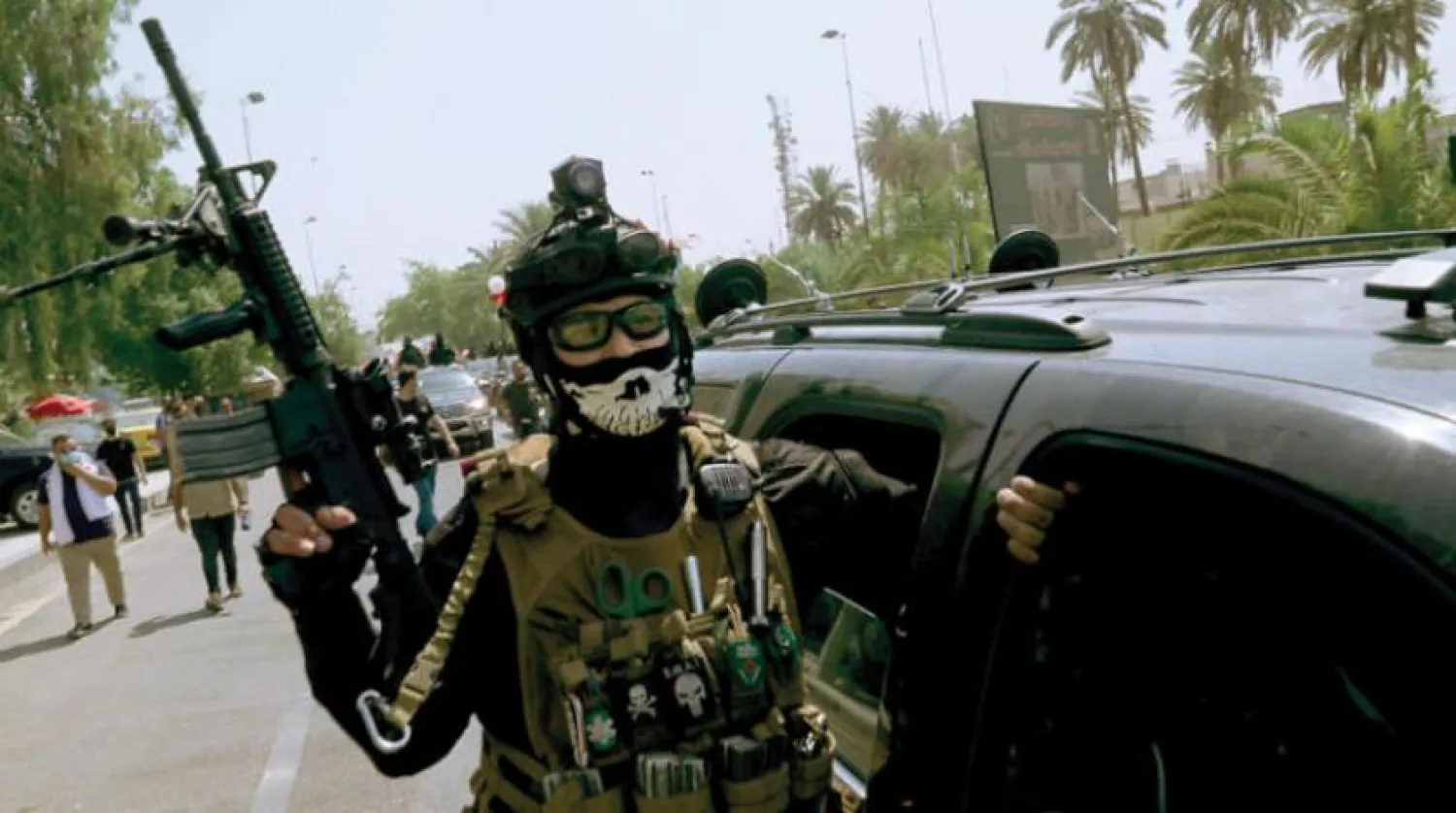Iraqi military sources revealed accelerated measures to regulate the relationship between the army and the Popular Mobilization Forces, days before the launch of the strategic dialogue between Baghdad and Washington, and US President Joe Biden’s meeting with Iraqi Prime Minister Mustafa Al-Kadhimi at the White House on July 26.
The new measures include “imposing more controls on the activity of the Popular Mobilization Forces and preventing the use of military sites affiliated with the army to launch hostile attacks” against military bases and foreign missions.
The sources told Asharq Al-Awsat that new arrangements were evident in most of the military units, noting that the factions have changed their field strategy by positioning in new locations on the outskirts of cities, or near the borders, to avoid air strikes, or by taking advantage of their presence in joint bases with the Iraqi army or the Federal Police.
According to information obtained by Asharq Al-Awsat, the Office of the Commander-in-Chief of the Armed Forces has recently imposed measures that include monitoring the activities of the brigades inside army bases, and preventing any illegal operations.
A leader in the PMF said that the new measures stirred sporadic clashes between the two sides.
According to field sources, “severe differences developed into a quarrel between Iraqi officers in a military air base and a major PMF brigade, north of Baghdad, over the launch of drones carrying explosive equipment.”
Notably, Biden will receive the Iraqi prime minister on July 26 in Washington, the White House announced. According to an official statement, this visit aims to stress “the strategic partnership” between the two countries.
The US presidency also said that Biden was looking forward to strengthening bilateral cooperation with Iraq on political, economic and security issues.









